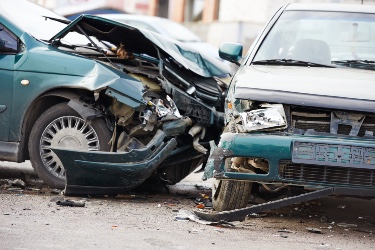How to Prove You Are Not at Fault in a Car Accident

There’s one question we frequently get as attorneys who help victims of car accidents: If I was in a wreck that wasn’t my fault, how do I prove it?
It can be challenging going through a car accident, much less trying to make it clear that you weren’t at fault. In a car accident, the determination of fault depends on proving negligence.
If you have questions about how to determine fault in a car wreck, consider reaching out to our attorneys. At Fadduol, Cluff, Hardy & Conaway, P.C., we understand what you are going through and are here to help.
Contact us online or call (800) 433-2408 today for a free consultation.
The First Steps in How to Protect Yourself after an Accident
There are multiple steps to determine fault. If you are wondering how to prove you are not at fault in a car accident, it begins with gathering evidence at the scene if you are able.
This may include:
- Contacting police officers;
- Speaking to witnesses;
- Taking photographs of the scene, including any skid marks; and
- Exchanging contact information with others involved.
Taking all these steps will make it more clear who was at fault for the crash. You want to have any available evidence ready to support your claim that you aren’t at fault. In addition, try to get all statements in writing.
Contacting Your Insurance Company
You should call your insurance company as soon as possible after an accident. If you believe you are not at fault, make your assertions clear in the call. However, you don’t need to provide detailed information to the insurance company or a recorded statement. If you have an attorney, inform the insurance company that communication should go through them.
Proving Negligence
Typically, there are four moving parts to negligence that must be proven to show that the other driver was at fault.
These include:
- The driver had a duty toward you to drive with reasonable care. For example, a driver has a duty to pay attention to the road.
- The other driver breached their duty to you. A breach of duty could be if they chose to use their cell phone to send a text while driving.
- The driver’s breach of that duty was the cause of the accident. Following the above, this means that but for the other party texting while driving, the collision would not have occurred.
- The driver caused you compensable damages or injuries. For example, due to the other party texting while driving, the car accident has caused you to suffer severe neck injuries or other damages.
If any one of these elements is not met, you will be unable to show negligence.
Does a Police Report Say Who Was at Fault?
You may wonder if a police report assists with determining fault in a car accident. The answer is that it does not include a conclusive determination of who was at fault, but it may be a critical piece of evidence in the process and can be one of the factors weighed to determine the parties’ fault.
Officers typically include several vital pieces of information in a police report. This includes a diagram of the scene, contributing factors, and the investigator’s narrative opinion on what took place.
Nevertheless, the viewpoint of the officer involved does not constitute a final determination of fault. If the officer’s opinion suggests that you were at fault for the wreck, you may be able to dispute that opinion with other evidence.
Contact a Knowledgeable Auto Accident Attorney Today
If you want to learn more about how to prove you are not at fault in a car accident, our injury attorneys can help you. The lawyers at Fadduol, Cluff, Hardy & Conaway, P.C. have over 65 years of combined experience. Call us at (800) 433-2408 or fill out our online contact form today for a free consultation.
